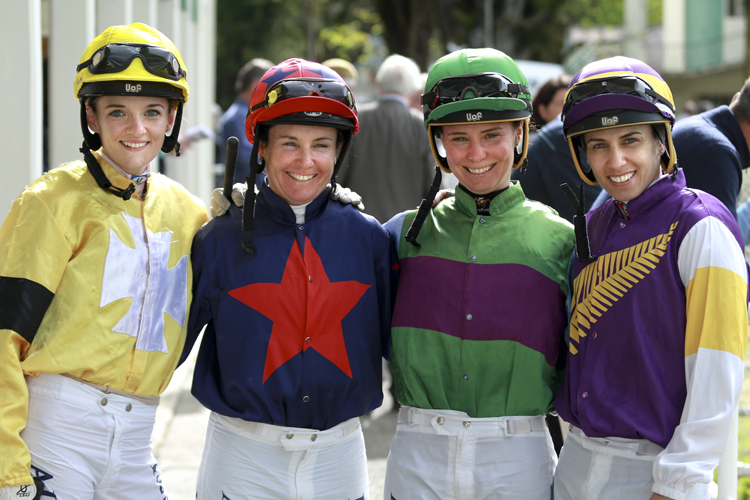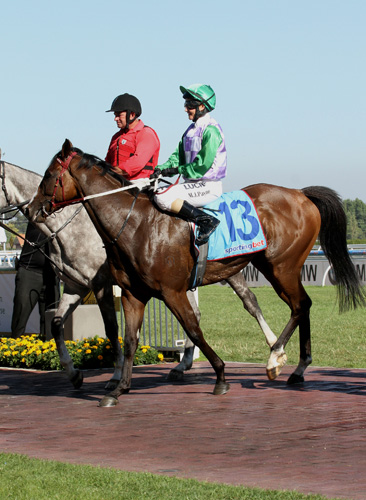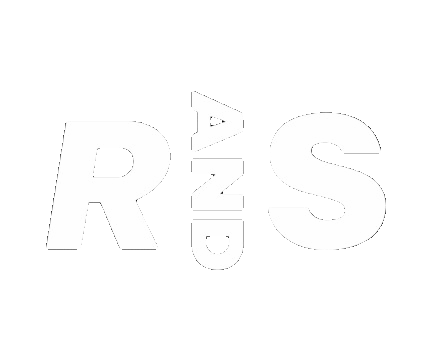3 minute read
Affectionately known throughout Australasia as simply the “Great Race”, the legacy of the Melbourne Cup .
Its place in thoroughbred racing is one of triumph and of tragedy, of winners, losers and a myriad of colourful characters, sights, scenes and scenarios over its sparkling 158-year history.

The 2015 running of the race saw another special chapter written into Cup folklore when Michelle Payne became the first and only female to date to ride the winner of the great race, aboard a kiwi-bred outsider by the name of Prince Of Penzance.
Such was the feel-good nature surrounding Payne and her journey to Cup glory, a movie on her life story was commissioned for the big screen resulting in the aptly titled Ride Like A Girl about to enter cinemas next week.

Picture: Racing and Sports
Central to the movie's theme is Payne's battle to be accepted as a female in the heavily male-dominated world of thoroughbred racing as a professional rider, capable of matching it with her male counterparts.
It wasn't that long ago that female riders were a rarity and often confined to competing in ladies-only events.
During the late 1960s and early 1970s in New Zealand, women were allowed to ride only in non-betting races reserved especially for them, in contests with names such as the "Powder Puff Derby."
Female riders are so much a part of New Zealand's racing landscape now, that it's hard to imagine the industry without them, yet it has been less than 45 years since women in this country were granted the right to hold a professional jockey licence.
The trailblazer was Linda Jones of Cambridge who in 1976 became the first woman to apply for an apprentice-jockey's licence, and she was refused, owing to being "too old, married, and not strong enough."
In July 1977, after significant pressure from the late John Costello, several progressive racing clubs, and a determined group of women riders across New Zealand, the New Zealand Racing Conference finally approved the licensing of female riders. It was somewhat inevitable that Jones would rapidly emerge as a star of the country's national scene.
Linda Jones' success opened the floodgates for women riders in New Zealand and today a raft of female riders are taking the riding ranks by storm.
Top of the current tree, male or female, is the Central Districts-based Lisa Allpress, who in 2012 became just the second female in New Zealand to win the national jockeys' premiership. Successful twice more since then, Allpress has ridden more than 1500 winners nationally while also achieving success during an 18-month stint in Singapore, as well as time in Japan.
Allpress began her riding career in 1995 as an apprentice with legendary trainer Kevin Gray and admits while attitudes to female riders have definitely mellowed over her years in the game, she has also run up against the anti-female bias that is heavily featured in the Payne story.
"I started as a probationer back in 1995 with Mr Gray," Allpress said.
"I had a good background through pony club and the like so I was lucky that I already knew how to ride a racehorse, muck out boxes and the on the ground stuff you do in that probation period so I could ride as soon as that was finished.
"In the early days I actually wanted to be a vet but through pony club commitments and the like I never had the scholastic achievements to follow that path so it was riding I chose.
"I think in New Zealand we are lucky with the riding opportunities that we do get but it has been tough at times.
"Even recently you can look on some of the big days and see how many girls get to ride in the Group One races and it might only be two or three at most which seems to suggest there is still a lack of faith at the highest levels.
"On the whole, there are a growing number of girls coming through with plenty of talent who can ride at the correct weight and are good at what they do.
"At most race-meetings these days there are often more girls riding than there are boys."
While Allpress is generous in her praise for the New Zealand scene she does candidly admit to some tough times during her stint in Singapore.
"At the time I went to Singapore I was the only female jockey and I did face a hell of a lot of sexism," she said.
"I was lucky to catch a special advance screening of Michelle Payne's movie and there is a scene where she is standing outside the trainers' hut day after day, waiting for a ride.
"I've experienced that and you almost start to feel like you are prostituting yourself just to get a ride.
"The looks you get and the smirks as they check you out, which has nothing to do with your riding ability, is something I experienced virtually every day while I was in Singapore.
"Coming back to New Zealand, I think we are a lot more politically correct and people don't get away with that sort of thing anymore."
Another of New Zealand's leading female riders is Rosie Myers who followed older sister Kelly into the jockey ranks in 2006 as an amateur rider while undertaking some papers at Massey University.
From a family steeped in racing tradition and accomplishments there was little doubt that she and her sister would eventually find their way to a racetrack career.
"I used to ride trackwork in the mornings while I was at Uni to make some money," Myers said.
"I didn't really think about being a jockey but when I left University, I went for a couple of jobs that were pretty boring. My sister Kelly was a jockey by then so I thought I would give that a go instead while I was still young.
"I've never really felt that I have been disadvantaged being a female in the riding ranks and I guess, in New Zealand, we've got some great female mentors.
"Kelly and Lisa Allpress were going really well when I first started so that was a big help.
"I rode a little bit in Australia as an apprentice and with my claim I managed to get plenty of rides, so I've never really felt any gender inequality.
"These days the majority of jockeys coming through seem to be females. I don't know why that is, but it does seem like some of the boys don't seem to be as interested in becoming a jockey.
"It might be a weight thing or the pony club grounding that more girls seem to have but the trend is definitely toward the girls."
Myers is currently sitting two wins behind Allpress on the premiership and has been in top form, bagging seven wins in a week including four at Tauherenikau last Thursday where she combined with Allpress (2 wins), Leah Hemi (1) and Charlotte O'Beirne (1) to have female riders take out the entire programme on the day, the second time the feat has been achieved this season.
For apprentice O'Beirne, the victory also continued a run of good form that has seen her register seven wins this season already after totalling a career high 14 in 2018/19.
It hasn't been all plain sailing for O'Beirne who nearly gave the game away after her first full season of riding.
"I started my apprenticeship with Peter McKenzie but when he got a bit short of horses, I shifted to Johno Benner," she said.
"I did have 18 months off after my first season as I was struggling with my weight and I got kidney stones and I needed a break.
"When I came back, I was in a better frame of mind and it has gone really well from there as my weight is stable and I have got some great opportunities from Johno and Hollie (Wynyard).
"My riding has improved a lot with the help of a lot of people including my partner Keil (Collins) who used to be a jockey himself."
O'Beirne is forthright in her advocacy for female jockeys and is thrilled by the opportunities that are available to apprentices like herself as they make their way in the early stages of their careers.
"Getting an opportunity to ride on an equal footing with the males in New Zealand and overseas is a huge stepping-stone and I think we are very fortunate.
"It is a great industry to be in and while you do come across those who think that the males are better, they are in the minority as most people are pretty open-minded and we should be proud of that in this country.
"I think I counted up the other day that there were 14 girls in the jockeys' room, which was great to see."
Allpress is a firm believer that while the opportunities are there for female riders, they still have the responsibility to maximise the chances they have been given by those who came before them.
"The top stream of female jockeys in New Zealand are definitely as good as the men and there are a lot more opportunities for the younger girls than perhaps there were when I was young," she said.
"Hopefully the young ones will make the most of those chances and strive to improve themselves while that opportunity is there."
Delighted to see that the Michelle Payne story has been made into a movie, Allpress has also taken the opportunity to use the inspirational tale to raise funds for a charitable cause that is close to her heart.
"I do a bit of volunteer work for the Wanganui branch of the Riding for the Disabled as I really love helping them out and going there and seeing the kids," she said.
"I was lucky enough to get to see an advanced screening of Ride Like A Girl and I really really loved it.
"After seeing it the idea came up to see if we could get it for Wanganui and we have managed to do that.
"We've booked out the movie theatre on the 31st of October and we're going to be using it as a fundraiser with auction items.
"We can raise money for Riding for the Disabled and give people the chance to participate in such an inspirational story, which I think is just fantastic."







